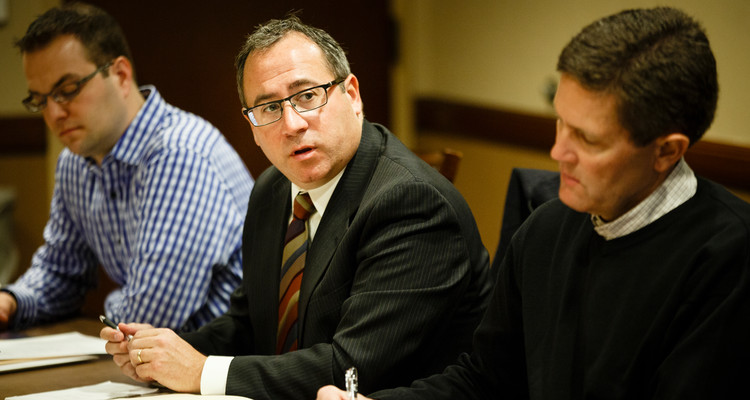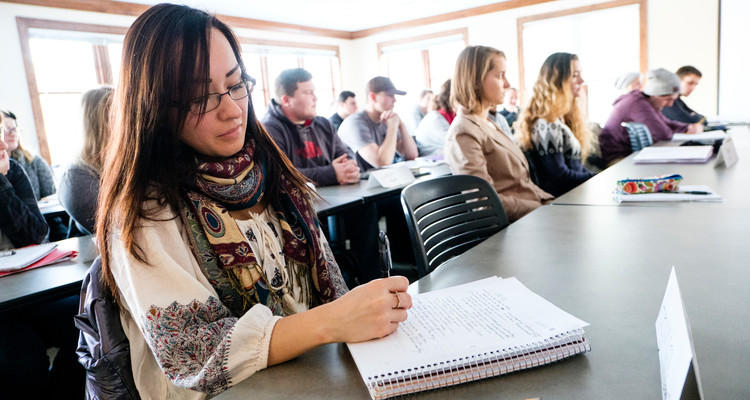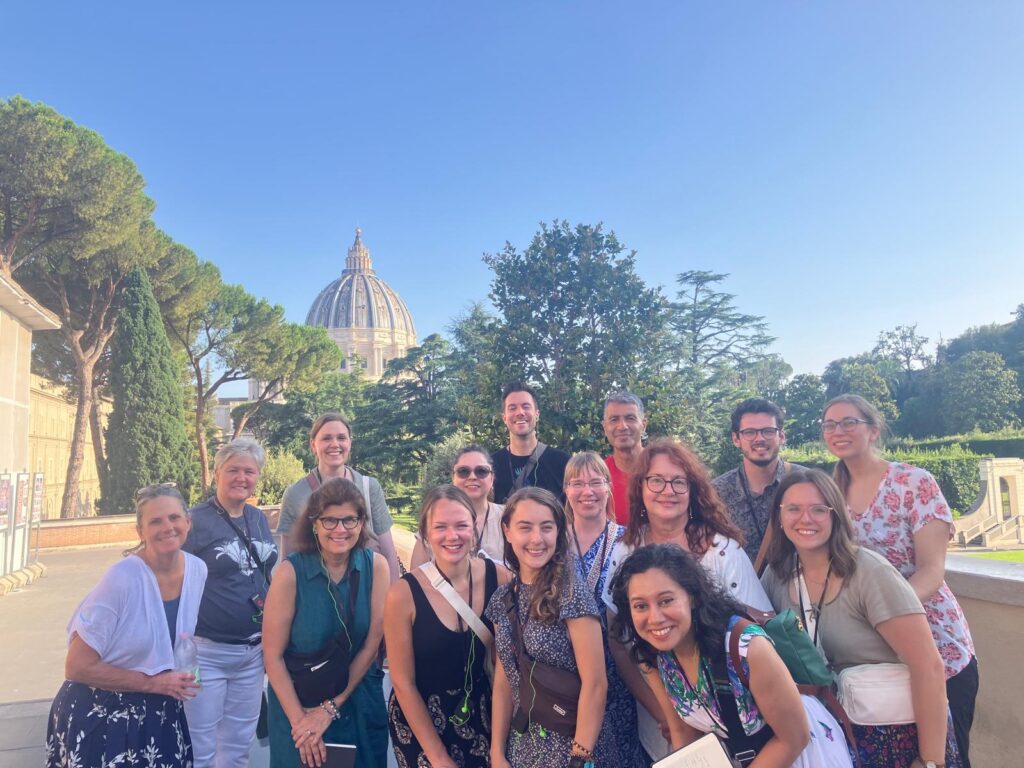When you think of occupations that will help one to grow in holiness, “sales” is probably not the first one to come to mind. But to salesman Gino Lambo ’95, sales is sacred. For him, his job is an all-out attack on human suffering and a most-fitting platform for giving glory to God.
Lambo, a member of the Center for Catholic Studies Advisory Board, began his sales career with an orthopedics company, selling devices designed for trauma and spinal injuries. But for the past decade, his work has taken him into even more dramatic medical territory: wound repair.
The reality of living with certain wounds can be severely debilitating and often carries with it an ignominy of nearly biblical proportions.
“There’s a whole stigma that goes with people with wounds,” Lambo said. The physical and emotional pain that accompanies this stigma is something he witnesses with frequency in young and old alike.
His current employer, Alliqua BioMedical, specializes in regenerative technology – that is, developing devices and products specifically for wound and tissue repair. The application of these biomedical products is impressive and literally life-changing.
Lambo can recall many success stories. One story that particularly resonated with Lambo was that of a 63-year-old man who had prostate cancer in addition to diabetes and a number of other complicating health issues. As sometimes happens with the chemotherapy he was receiving, he developed a wound at the infusion site. The skin fell off his hand exposing bone and tendon. The wound developed an infection so bad that his hand turned green and was covered in mucus. He was a farmer and completely dependent on his hands for his work. Additionally, he was the sole caregiver for his quadriplegic adult son. Amputation – the last remaining option – would have been devastating for him and his family.
But then Lambo introduced his doctors to a regenerative treatment: MIST Therapy, a painless, noncontact low-frequency ultrasound delivered through a saline mist directly to the wound. After 55 treatments over three months, the wound this patient had struggled with for two years healed completely. He was able to return to farming and to caring for his son.
Another patient, a 90-year-old woman, was faced with leg amputation because of a long-standing wound. Lambo again recommended the ultrasound therapy, and combined with a number of other treatments, the wound healed. It took just four weeks.
When she saw Lambo after the treatment had proved successful, though she could barely stand up, she insisted on hugging him.
“I just said, ‘This isn’t my doing,’” Lambo recalled. “And she said, ‘Yes it is. You’re the one who came to these people to tell them about this wonderful technology that saved my leg.’”
She went on to explain that in one week her grandson, a Marine who had just returned from serving overseas, would be married.
“It will be the happiest day of my life to dance with my grandson at his wedding,” she said.
Moments like that help Lambo to push through the commonplace rejection that comes with a sales job. “You’re rejected far more often than not,” he said, “but [that moment] gave me a stronger purpose to really go out there and talk to everyone possible about this technology. ... The thought that I could help just a few patients, that’s my motivator.”
A Living Donation
His company has developed other products as well through processing and repurposing human tissue that has been donated. Unlike the selling and purchasing of human organs, which the Catholic Church considers immoral and is illegal under the National Organ Transplant Act (NOTA), donated human tissue can be used in a licit manner.
It has long been known, that, for example, human placenta has incredible healing properties. Decades ago, it was not an uncommon treatment for burn victims. Human placenta would simply be placed on the burns and because of its high density of nutrients, it would help to grow new skin. Research has come a long way in developing therapies using human placentas that have been donated for medical products.
“It’s a very happy time in the family,” Lambo said. “They’ve just given birth to new life and they want to use that tissue to help other people.”
Alliqua and other companies like them use donated placenta tissue to develop regenerative therapies that treat a wide variety of illnesses and wounds.
Lambo offered the striking example of epidermolysis bullosa (EB), a condition that is the result of a defect in the anchoring between the epidermis and dermis. The skin of a child with EB is so fragile, it literally falls off. They are sometimes referred to as “butterfly children” because their skin is “as fragile as a butterfly’s wings.”
“It’s one of the worst diseases out there,” Lambo said. “If you touch them, you’ll rip their skin. And these children – you can’t touch them, you can’t hold them – and they walk around for their short lives with cellophane wrapped around their body.”
The products that Lambo sells are being introduced into that patient population with some promising indications.
A Selling Foundation
Lambo credits his time at St. Thomas and, in particular, his coursework in theology and Catholic studies for helping him to develop a firm, ethical foundation from which to work in sales. His occupation invites him to see life at many different stages, including the end of life. He recalled with special admiration spending several hours at the deathbed of a long-standing patient, Paul, who was finally succumbing to multiple, complicated, painful illnesses. Lambo recalled how Paul bore his suffering with patience and humor and a remarkable lack of self-pity.
“He gave me a great gift in how gracefully he suffered,” Lambo said. “You do become close with the patients, but actually they help me with my spirituality and my foundation as a Catholic. You really do see life as precious ... and in illness or injury, you learn so much about yourself as well as other individuals that are going through that suffering.
“It helps you understand that there is dignity in suffering, there is purpose,” Lambo said.
So, too, there is dignity and purpose in sales.
“No matter what vocation you’re called to,” he said, “we understand it’s to glorify God. Whether it’s in communications, or in journalism or in marketing, whether it’s in finance, banking, real estate or medicine ... it can be a vocation for the glory of God.”







